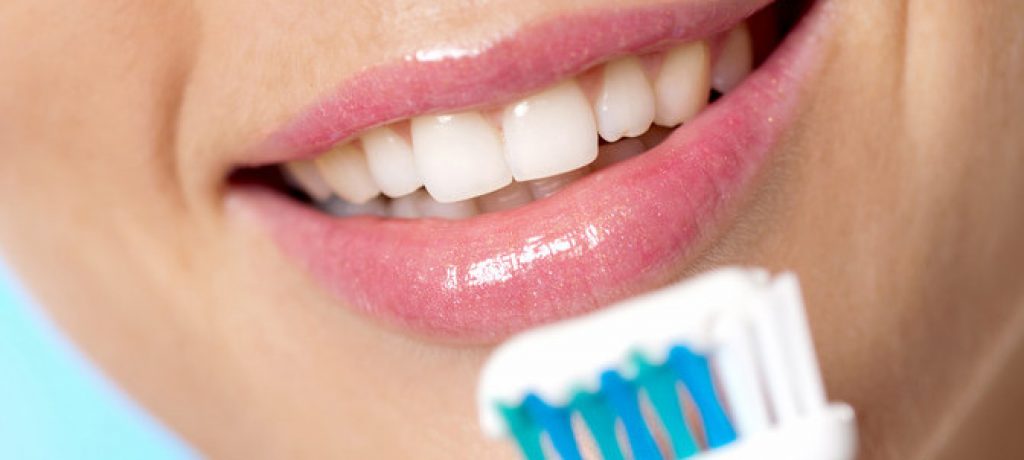Resource Library
Start Reading

You’ve been brushing your teeth for as long as you can remember, so you probably don’t give much thought to it. Most of us don’t even contemplate our brushing habits until we go to the dentist and have to admit that maybe we don’t floss as often as we ought to. Unless you have a cavity, you probably don’t think at all about how you’re brushing, and whether or not you’re doing a good job. So what is the best way to brush teeth? Doctors at Penn Dental Family Practice are committed to your overall oral health, and to help you maintain it, we’ve compiled this guide to brushing your teeth– the right way.
Your Toothbrush
Your toothbrush is an important part of the oral hygiene equation, so you shouldn’t take choosing one lightly. If it’s hard to fit your toothbrush into all of the areas around your teeth, it’s probably too big. Dentists recommend a small headed, soft bristled brush for everyone. Softer bristles are actually significantly more effective in removing plaque and debris than harder bristles, and are gentler on your gums and enamel.
Is the best way to brush teeth with an electric toothbrush? It depends on the individual. If you are able to reach all of the areas of your mouth, and maintain proper motion throughout, using an electric toothbrush is a matter of personal preference. For those who have difficulty holding or moving a toothbrush, such as those suffering from arthritis or other musculoskeletal or neurological disorders, an electric toothbrush can greatly improve the effectiveness of every day brushing.
The Time You Take
Though most adults spend less than 45 seconds brushing their teeth, proper tooth brushing requires at least two minutes. The best way to brush teeth if you have trouble focusing for that long is to set a timer, and divide your mouth into zones, working for thirty seconds. Are you easily distracted? Try listening to musing or watching tv or a video while you brush.
Your Grip and Your Angle
Many people hold their toothbrush in their fists, but the truth is, this makes it hard to angle it properly and reach all surfaces effectively. Dentists recommend instead holding your brush the way you hold a pencil.
Speaking of angle, it’s important to hold your toothbrush at a 45 degree angle (diagonally) from your gum line, rather than a 90 degree angle (perpendicular, or straight on) in order to be most effective and gentle when brushing. Poor grip and angle can cause abrasion of your tooth enamel.
Your Method
Always start on the outside of the top teeth, and then move to the outside of the back teeth. The best method for brushing is to use short, single-tooth wide back and forth strokes. Next you can move to the top inside, followed by the bottom inside. You can use the tip of your brush, angled vertically, to clean the inside of the front teeth. You will also need to brush the chewing surfaces of your molars. Finally, don’t forget to brush your tongue to prevent bad breath.
When You Brush, and How Often You Brush
Dentists recommend you brush at least twice a day, and if possible, three times. That said, dentists do not recommend that you brush immediately after meals. Meals that contain anything acidic (fruit, vegetables, vinegar, sweeteners, nuts, or coffee, among others) can soften the enamel of your teeth, and brushing too soon after these meals can damage them. The best way to brush teeth in relation to meals is to either do it before eating, or to drink water after the meal and wait thirty minutes before brushing.
Is brushing teeth too much possible? Sure. Just like any other substance, if your teeth are subjected to too much friction, they will start to erode. However, as long as you don’t brush your teeth more than three times a day or for more than three minutes at a time, you don’t need to worry about brushing too much.
Your Toothpaste
When you walk into your grocery or drugstore, you probably see at least two dozen different toothpaste options. Should you use whitening, sensitive tooth, or peroxide? Is the best way to brush teeth with baking soda? The truth is, fancy toothpastes are at best unnecessary, and at worst, bad for your teeth. Whitening toothpastes, for instance, can be very harsh, and should be used sparingly. Dentists recommend using a basic fluoride toothpaste every day. If you feel it’s important to use a specialized toothpaste, make sure you alternate it with a standard fluoride paste to avoid damaging your enamel.
Flossing: Does that really matter?
It’s not a surprise, but flossing does really matter. Floss allows you to get into spaces between teeth that your toothbrush misses. When flossing, string floss between your pointer and middle finger, wrap it in a C shape around each tooth, and use a back and forth push-pull motion. You should floss once a day, before brushing your teeth at bedtime.
Want to know more about brushing your teeth?
Your Penn Dental Family Practice doctor can help you understand the intricacies of your own mouth, and what products and methods are best for your oral hygiene. Reach out to us today at 215-898-PDFP(7337).